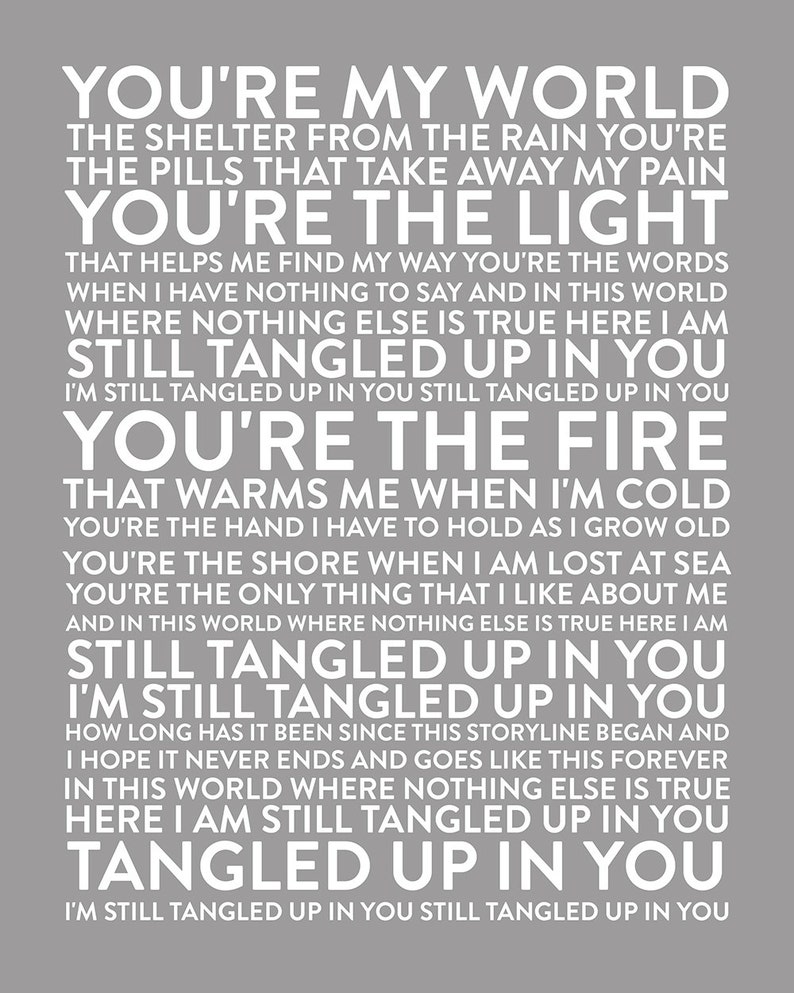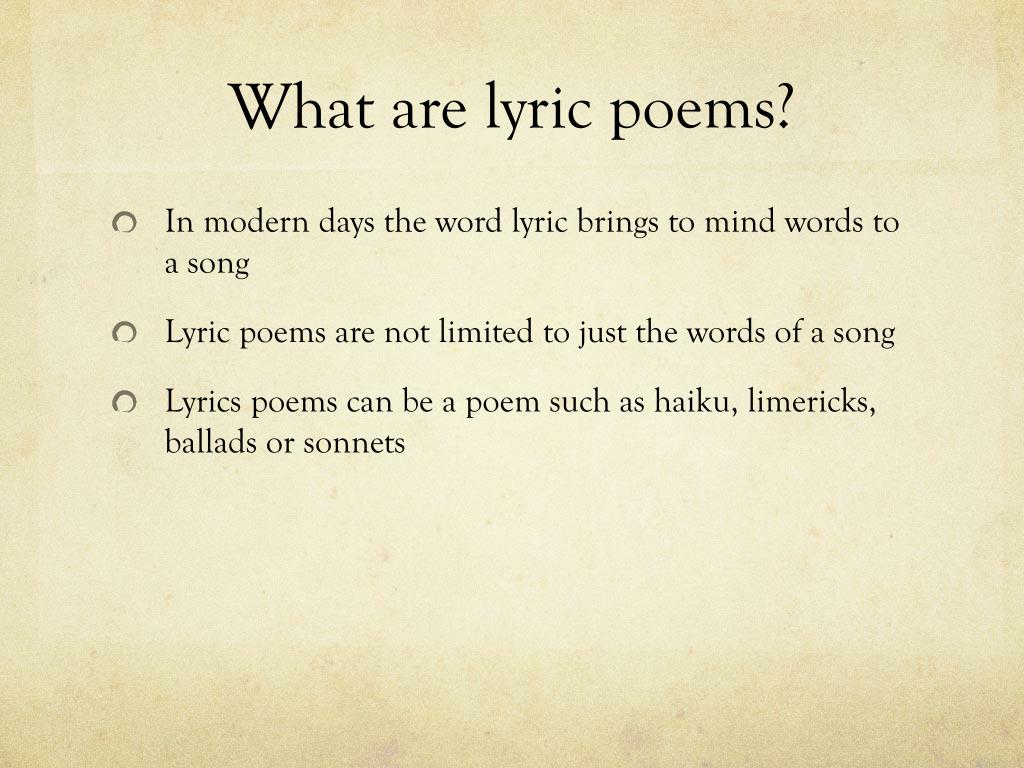



In other words, lyric poetry is the private and personal world made public through each reader, whereas dramatic poetry is public-intended writing made public for groups or crowds who have convened for the purpose of verbal performance. Likewise, unlike dramatic poetry, which began in ancient Greece at Dionysian festivals and was written expressly for physical and dramatic performance-often as part of a play or video, such as Spoken Word poetry today, lyric poetry tends to be meditative, quiet (not to be confused with boring or conflict-less), and introspective in nature. In lyric poetry, the readers are eavesdropping, in a way, on the doubts, conflicts, and hope of a speaker whose turbulence or joy the reader begins to identify as common to the human condition. So, what sets lyric poems apart from other types of poems? Whereas narrative poems (much like their prose cousins) explore a story, often with a specific external setting, lyric poems exist in a freeze-time vacuum, similar to a pause button, where the speaker of the poem sorts through inward thoughts, feelings, and reactions to a slightly-removed external world. It encompasses, but is not limited to, poems in praise called odes poems in grief known as elegies and persona poems, where the poet takes on a character role, voicing conflicts and emotions aloud as a different speaker. I for one need all the help I can get.Yric poetry is a diverse category of writing that can enhance not only your poetry but your prose as well. Why not buy a book of poetry, or study a textbook on poetry a little every day? Everything you learn about poetry can help you write better lyrics. Instead of dismissing poetry as too many commercial songwriting authors have, let’s choose to benefit from the centuries of insight that it offers us. Writing poetry is a way to exercise all of these skills which are so valuable to lyricists – the skills you can’t learn from your guitar, piano, or singing instructors. Songwriting is a complex puzzle made up of all these problems and more. Arrange sections of a text into a logical, seamless whole.Take a basic idea and rephrase it in fresh, creative ways.Train themselves to hear the music hidden in language.Write memorable titles, refrains and choruses.Whether you want your lyrics to read well on the page is a personal decision.Īside from that single difference, poets and lyricists share much in common. A lyric that works beautifully in a song might sound downright silly when read without music. The truth is that there’s only one difference between poetry and song lyrics: Lyrics are set to music. Why are they so eager to turn us away from the tradition of poetry, which can teach songwriters so much? I suspect it’s because the music industry’s job is to sell music, and compared to music sales, literary poetry just doesn’t rake in the big bucks. Many books written by commercial songwriters are quick to claim that song lyrics and poetry are different crafts. There would be no time signatures in music without poetry. Meanwhile, western music theory adapted the concept of rhythmic meter from poetry. During the medieval period in Europe, a “lyric” was any poem written so that it could be set to music – with a particular number of syllables per line. The ancient Greeks sang lyric poetry while playing the lyre. Bowra, Primitive SongĪny aspiring songwriter can learn a lot by writing, reading, and studying poetry – because poetry was born from music long ago, and the two have influenced each other ever since. Once words have begun to be accommodated to music, they display qualities which might not be expected of them in their ordinary duties, and have not only lilt and balance, but tone and quality They are more carefully chosen than other words – C.M. Modern song lyrics are just the most recent way that music and poetry have come together. Poetry and music share a long history of mutual inspiration and collaboration.


 0 kommentar(er)
0 kommentar(er)
